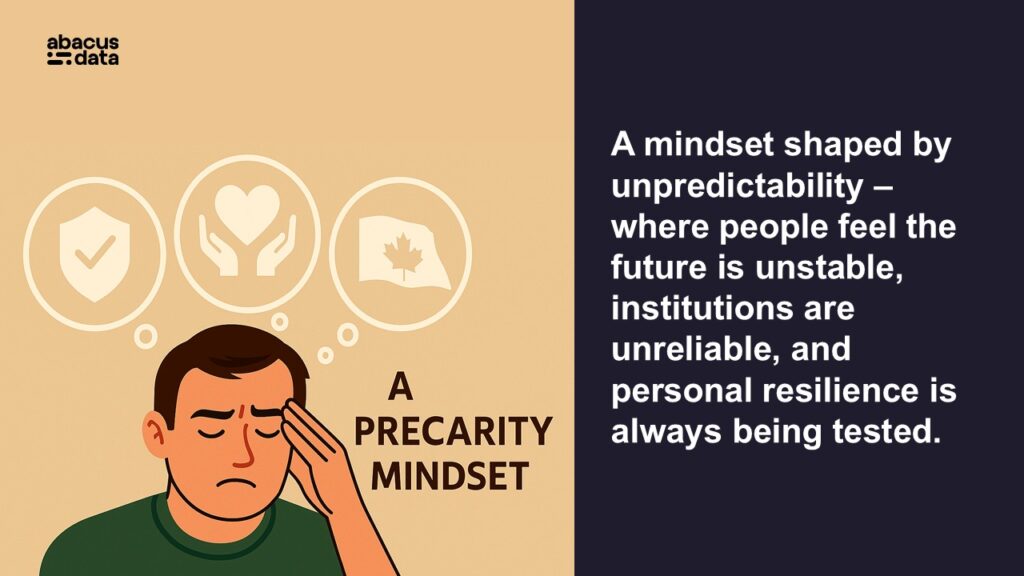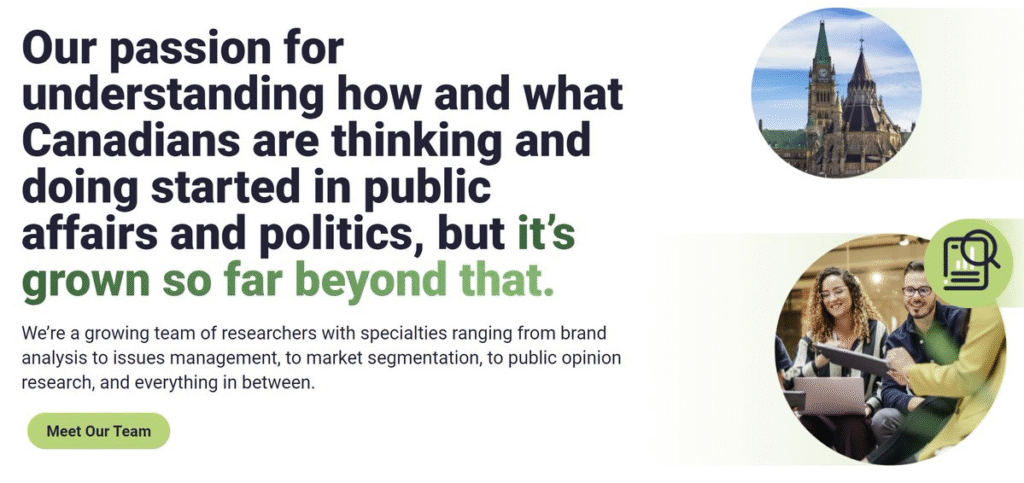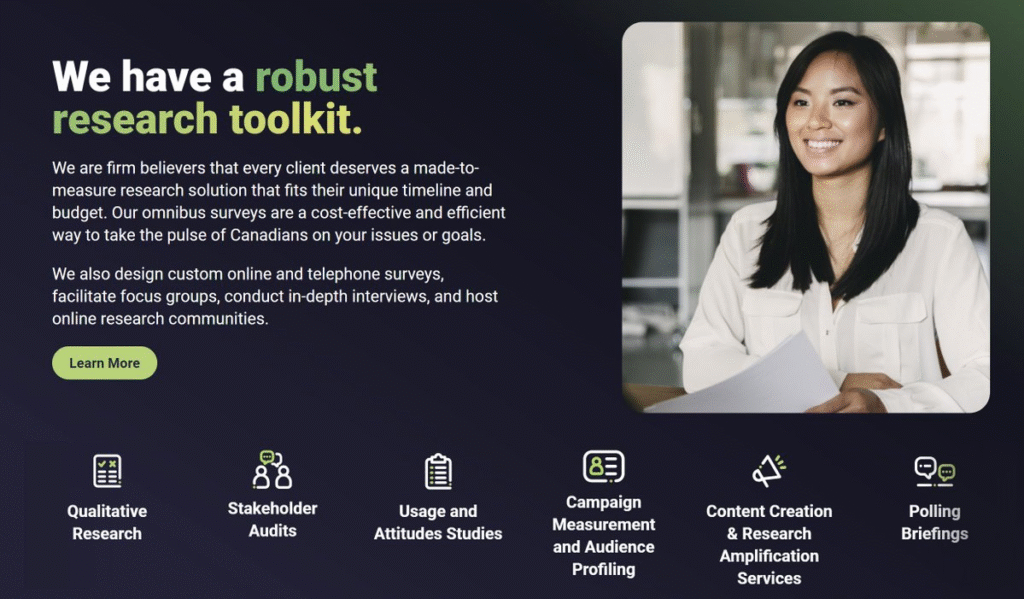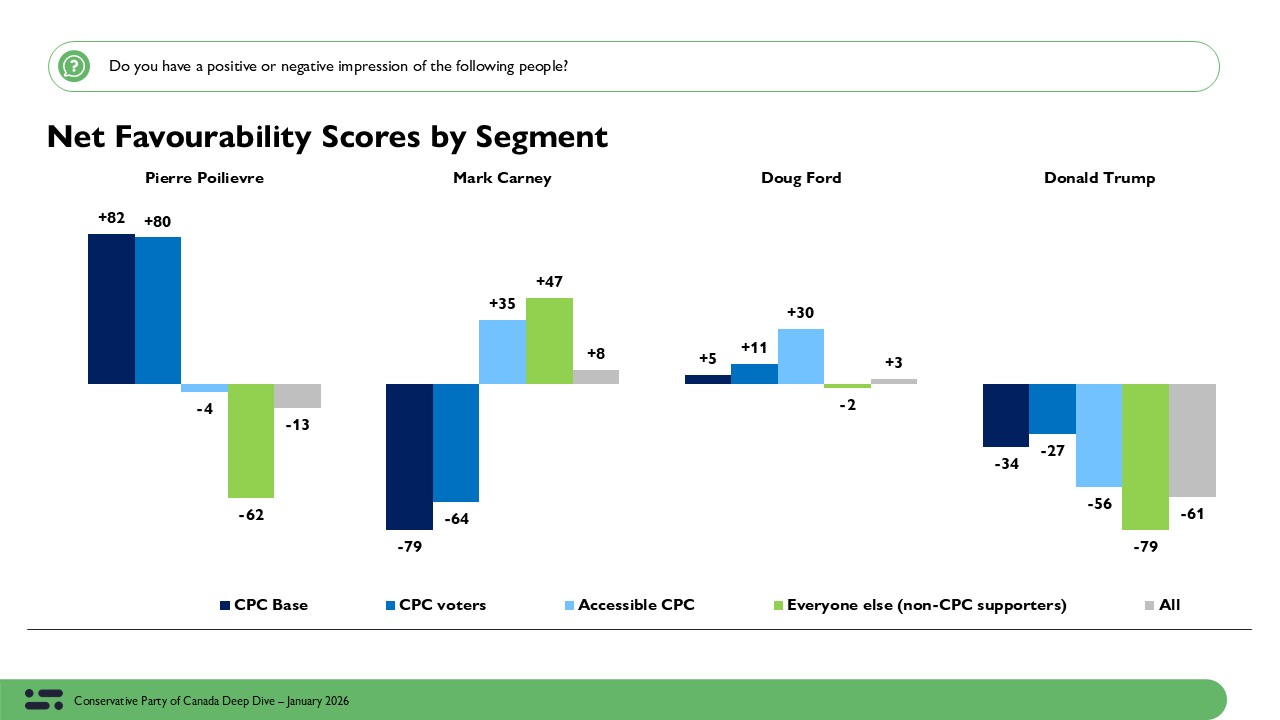Canadians Are Anxious but Pragmatic. Leaders Should Take Note
- Blog
- Canadian Politics
- Consumer Behaviour
- Generational Change
- Insights
- International Affairs
- Public Policy
September 15, 2025
As Parliament resumes today, Canada enters a period of both uncertainty and possibility. Public opinion reflects a population that is anxious about the future but pragmatic about the choices ahead. For leaders in business, labour, and associations, understanding this mood is critical: it shapes not only the political environment but also the space in which organizations advocate, negotiate, and grow.
An Age of Precarity
Canadians are living in what can best be described as an age of precarity. People are worried about the rising cost of living, the difficulty of affording a home, and strains in healthcare. At the same time, they are watching global turbulence unfold — from Donald Trump and the growing instability of trade relationships to war and conflict around the world.
This combination of domestic strain and external risk is making Canadians more skeptical and more demanding. They want reassurance, but they are not looking for ideological experiments. Instead, they are asking for competence, clarity, and tangible results.
For leaders, the opportunity is to align strategies with this pragmatic mindset. The risk is in ignoring it and appearing disconnected from the mood of the country.

A Competitive Political Environment
Politically, Canada is in a dead heat. The Liberals under Mark Carney and the Conservatives under Pierre Poilievre are running neck and neck. Neither enjoys a decisive advantage, and both face limits to their appeal.
This balance creates a unique environment for external actors. Governments under pressure to compete for trust are more open to credible ideas, partnerships, and evidence-based advocacy. But the flip side is volatility: policy positions can shift quickly, and today’s consensus can become tomorrow’s battleground (like immigration or climate policy).
For associations and unions, this means advocacy strategies must be nimble. For businesses, it means preparing for scenarios in which government policy takes different turns depending on political winds.
The Demand for Tangible Results
Canadians want action on affordability and growth. They are pragmatic about fiscal choices: open to restraint if necessary, but not enthusiastic about austerity for its own sake. They want projects and policies that clearly improve their lives, not just national statistics.
This creates a challenge: grand narratives about competitiveness or growth are not enough. People want to see how those decisions will help them manage their costs, find housing, or secure healthcare. Leaders who can connect macro policies to micro benefits will find receptive audiences.
The opportunity lies in framing proposals around tangible outcomes for households. The risk is in relying on abstract arguments about long-term growth or competitiveness without grounding them in immediate benefits.

Trade, Technology, and Workforce Tensions
Two areas deserve special attention.
First, trade with the United States. Canadians see it as essential but also as a source of great risk. They expect turbulence, whether through renegotiations of trade agreements or new tariffs. For leaders, this means diversifying markets and supply chains isn’t just smart strategy, it aligns with public expectations. The opportunity is to show resilience and adaptability. The risk is being seen as too exposed to forces beyond our control.
Second, technology and immigration. Canadians are ambivalent about artificial intelligence. Some see opportunity, others fear disruption. Immigration, too, has become a more divisive issue, with labour market programs under scrutiny. For businesses and unions, this means engaging directly in the debate, offering credible reassurances about how these forces can benefit Canadians rather than threaten them. The opportunity is to lead the narrative. The risk is ceding it to those who exploit fear.
The Path Forward
In an age of precarity, leadership requires two things: reassurance and relevance. Canadians are pragmatic. They will support difficult decisions if those decisions are explained clearly and connected to their lived experiences. They are open to adjustment and change, but they want to know it will make their own lives more secure.
For business, association, and union leaders, the task is to frame proposals in terms of both national interest and household impact. Show how your sector helps reduce costs, create jobs, and provide stability. Demonstrate resilience in the face of global uncertainty. And engage in debates about technology, trade, and workforce policy with clarity and confidence.
The risks of this moment are real: volatility, skepticism, and political competition can undermine progress. But the opportunities are equally significant. In a period where trust is scarce, those who can provide credible reassurance and demonstrate tangible value will can shape public opinion and the pressure placed on our policy makers.

ABOUT ABACUS DATA
We are Canada’s most sought-after, influential, and impactful polling and market research firm. We are hired by many of North America’s most respected and influential brands and organizations.
We use the latest technology, sound science, and deep experience to generate top-flight research-based advice to our clients. We offer global research capacity with a strong focus on customer service, attention to detail, and exceptional value.
And we are growing throughout all parts of Canada and the United States and have capacity for new clients who want high quality research insights with enlightened hospitality.
Our record speaks for itself: we were one of the most accurate pollsters conducting research during the 2025 Canadian election following up on our outstanding record in the 2021, 2019, 2015, and 2011 federal elections.
Contact us with any questions.
Find out more about how we can help your organization by downloading our corporate profile and service offering.



